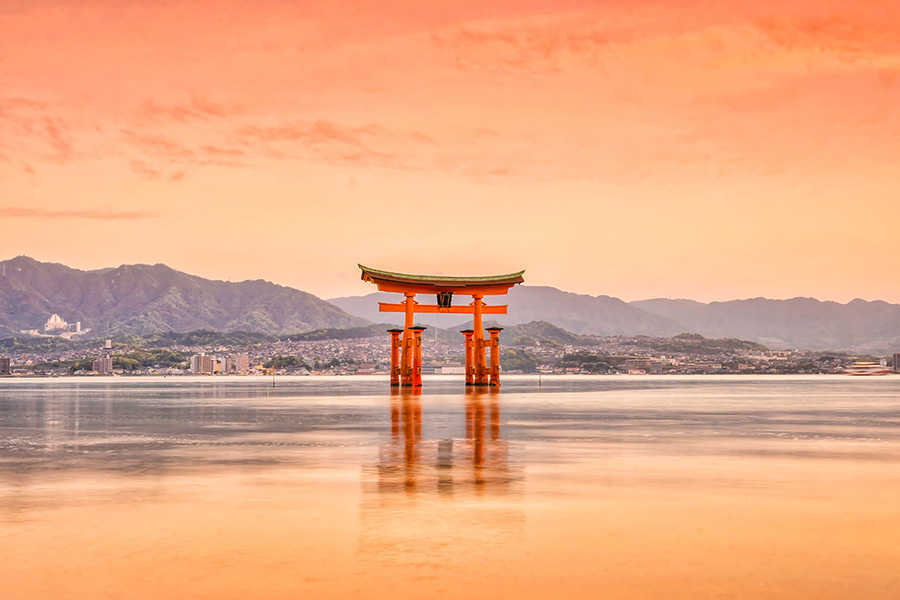
Top 10 Modern & Traditional Cultural Experiences in Japan

November 27, 2024
6 minute read
Ancient tradition and stunning modernity collide in this island country. The multifaceted culture of Japan presents an intriguing juxtaposition, one in which contemporary advancements and futuristic feats shine whilst a rich historical heritage is honoured and celebrated.
Ultramodern skyscrapers dominate the skyline as centuries-old castles preserve the past. Giant robots and lively themed cafes dazzle as traditional tea houses host ritualistic ceremonies. Aerodynamic bullet trains move at breakneck speeds whilst sumo wrestlers continue to compete in Japan’s oldest sport. In Japan, the past seamlessly blends with the future.
There are countless ways to discover it. These experiences are just a few that showcase some of the cultural traditions and modern culture of Japan:
Activities to Experience Traditional Japanese Culture
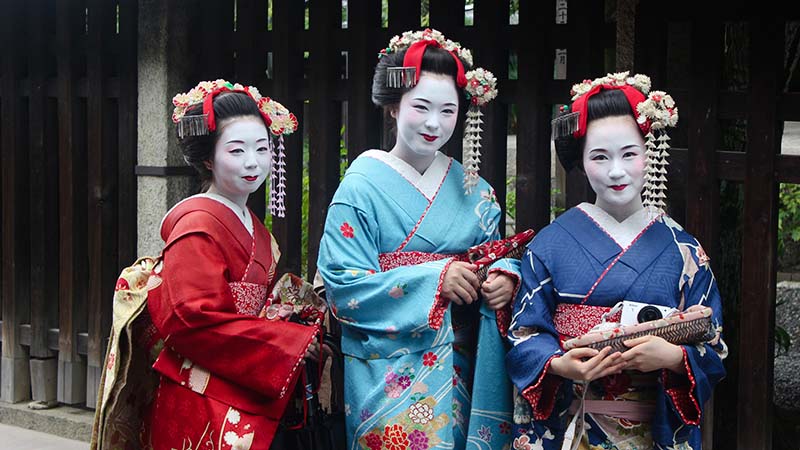
1. Geisha
Geisha refers to women who are professional entertainers and artists. Held in high esteem, geisha are thoroughly trained in various skills, like singing, dancing, playing instruments, making conversation, and more. Apprentices are referred to as “Maiko,” whilst fully trained professionals are known as “Geiko.” Geisha typically entertain during meals, tea ceremonies, and other events, and have done so for hundreds of years. At a geisha dinner, guests can enjoy a meal whilst a geisha, elegantly dressed in a kimono, performs and entertains with traditional Japanese arts. It’s an experience that travellers on our Cultural Treasures of Japan tour can be a part of themselves.
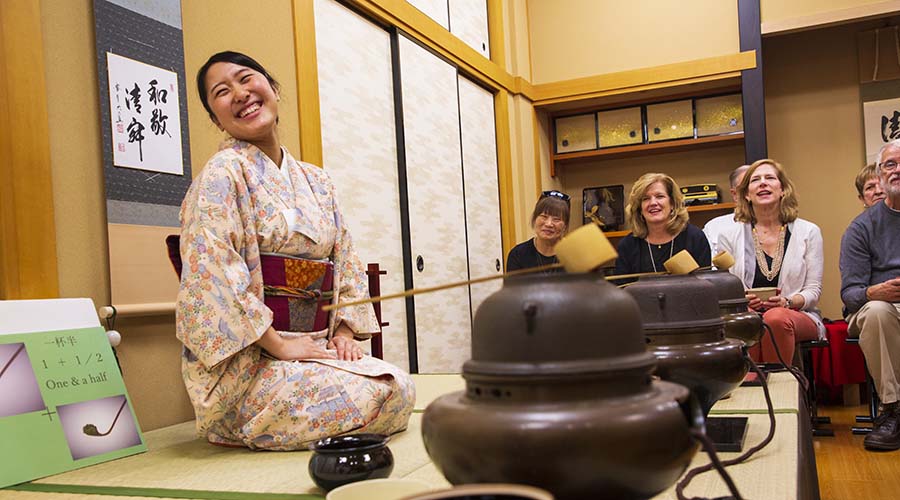
2. Japanese Tea Ceremony
In Japan, serving tea is a ritualistic art form. Tea is served and received, but the purpose extends far beyond that. These ceremonies are a deep-rooted tradition that can offer a peaceful reprieve from the outside world. Informed by centuries of practice, tea ceremonies are carried out with a calm precision that dictates even the finest details, such as hand movements. Values like purity, humility, harmony, and respect are intertwined with the ceremony, which is an experience offered on our Japan tours. Whilst modern-day tea ceremonies vary in authenticity and experience, they're traditionally held in a tea room and involve various customary elements.
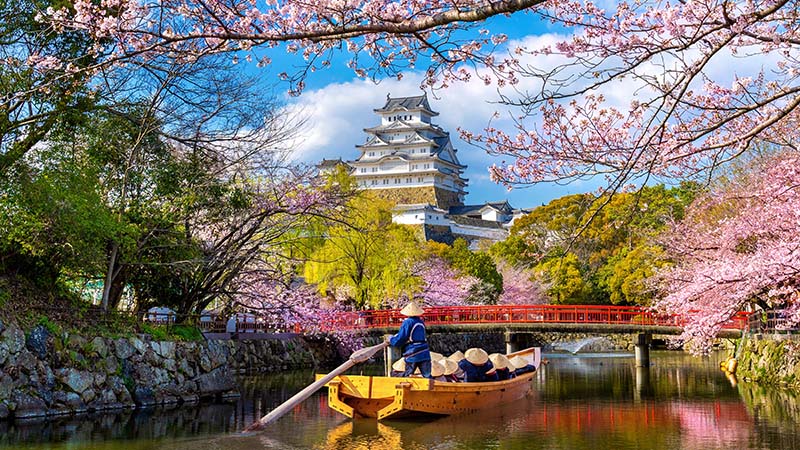
3. Japanese Castles
Japanese castles both preserve the island country’s heritage and present stunning examples of functional architecture. Newer castles have been built, but some original structures still stand, having survived through centuries of turmoil, change, and growth. Moats, towers, walls, and gates are a few common features, and many castles have a “stacked” or tiered appearance. The Himeji Castle, a UNESCO World Heritage site, is only one of the brilliant complexes that still stands, offering a must-see peek at Japan’s past.
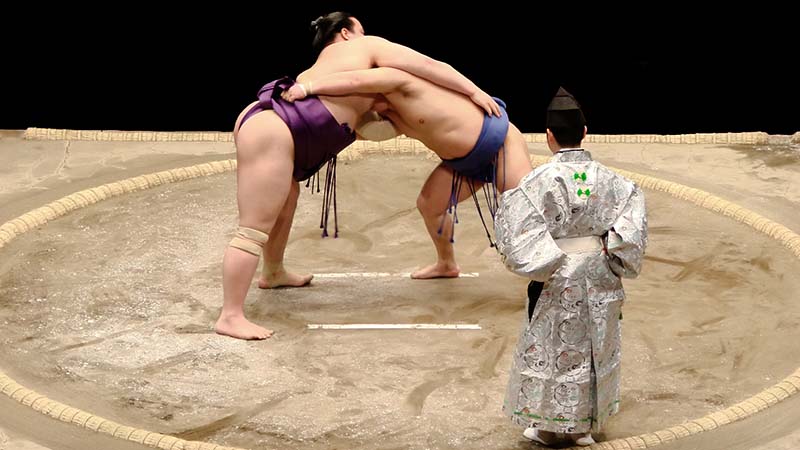
4. Sumo Match
Sumo is a centuries-old sport deeply intertwined with Japan’s cultural traditions. In this version of wrestling, a competitor wins by forcing their opponent out of the ring or causing their opponent to touch the ground with something other than his feet. There are no weight classes in sumo, which encourages competitors to be bigger and stronger than their opponents. As for uniforms, participants only wear a mawashi, a type of loin cloth. Spectators can expect matches to be on the shorter side, usually lasting just seconds or a few minutes. They might also catch a glimpse of the religion-backed rituals that are integral to the sport, like throwing salt in the ring.
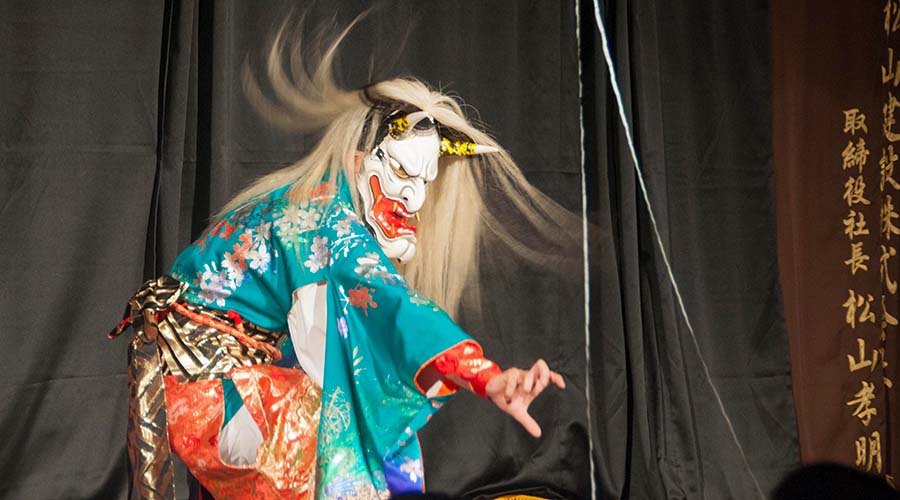
5. Kabuki Performance
Drama is centre stage during a kabuki performance—quite literally. According to UNESCO, kabuki is a type of Japanese theatre that goes back generations. Tales can range from tragedies to histories to moral dilemmas, and key components include dance, music, elaborate costuming, and exaggerated acting, along with special stage devices. And, whilst some characters may be female, all modern kabuki actors are male. Performances are in Japanese, but the stylized acting and English translations, which are sometimes offered, can aid visitors with understanding.
Activities to Experience Modern Japanese Culture
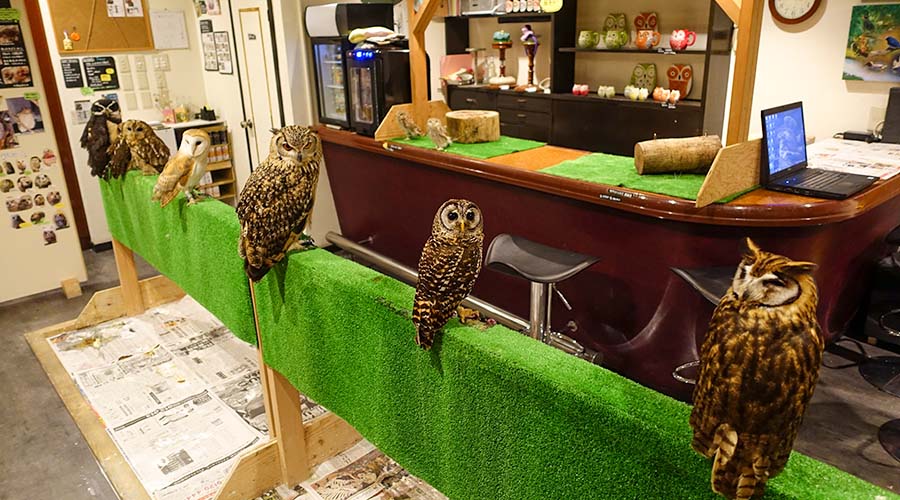
1. Visit Themed Cafes
Japan is known for its imaginative themed cafes, which are a far cry from your typical coffee shop setting. These cafes are fully designed around niche concepts, which inspire the décor, menu offerings, entertainment, uniforms, atmosphere, and more. The themes are incredibly diverse and unique. Anime and manga characters, animals, robots, and Alice in Wonderland are only a few types of cafes you might stumble upon. And, whilst these cafes can certainly vary, one thing is for certain: you should expect an experience, not a simple meal.
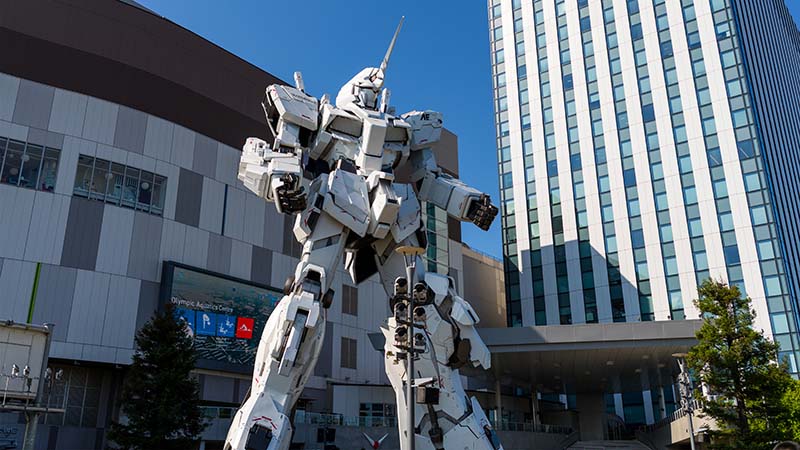
2. See Giant Robots
Robots are yet another wonder of the modern culture of Japan, which is known for its technological advancements. From robot hotels and cafes to showrooms, exhibits, and giant displays, there are many ways to interact with these futuristic machines. One of the most popular attractions is Japan’s colossal robot displays, which bring fictional machines to life—enormous size and all.
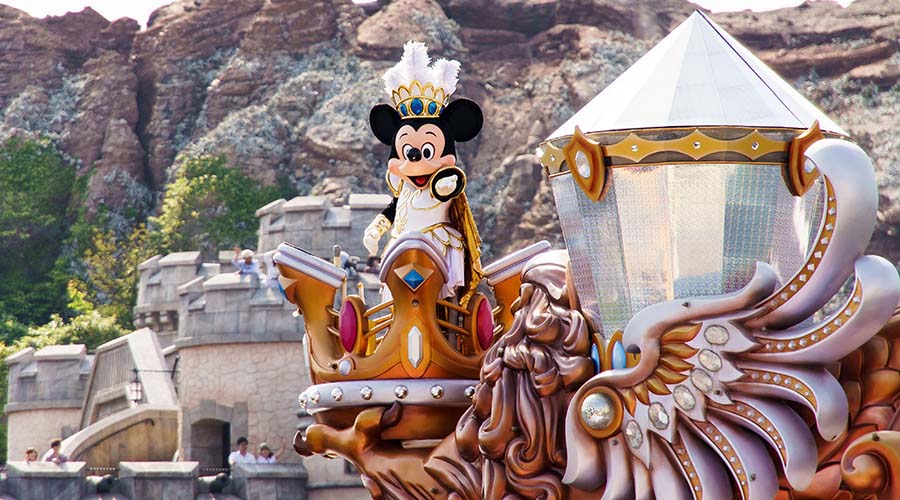
3. Explore Theme Parks
For anyone seeking a mix of excitement and wonder, theme parks are one of the best places to visit in Japan. Disneyland and Universal Studios fans can find their favourite parks here but with a few exclusive, unique attractions. Thrill seekers can ride record-breaking rollercoasters, adrenaline lovers can try out exhilarating rides, and adventurers can be transported through themed experiences at various parks. And that’s only a taste of Japan’s diverse theme park offerings.
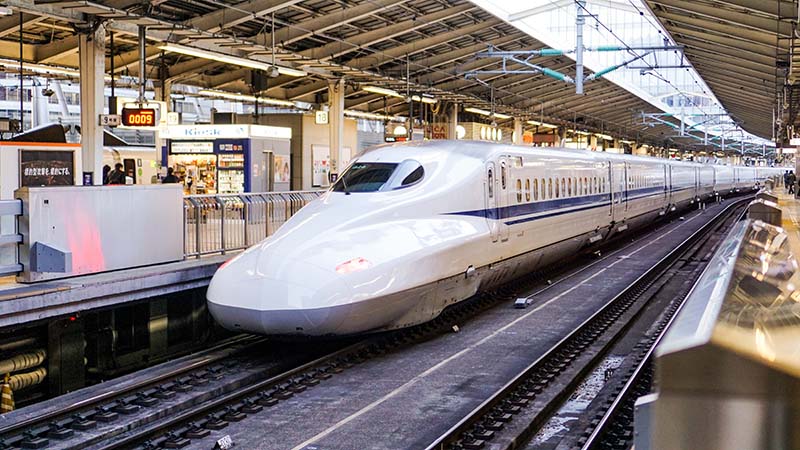
4. Ride a Bullet Train
Whilst it may be a regular activity for those who live there, riding a bullet train in Japan is an impressive experience for many visitors—and one you can have on our Japan: Past and Present tour. These ultra-sleek high-speed trains, called shinkansen, run at speeds in the triple digits. These trains are a great way to travel quicky—very quickly—from Tokyo to some of Japan’s other cities. That being said, make sure you’re on time! These trains are known for their punctuality.
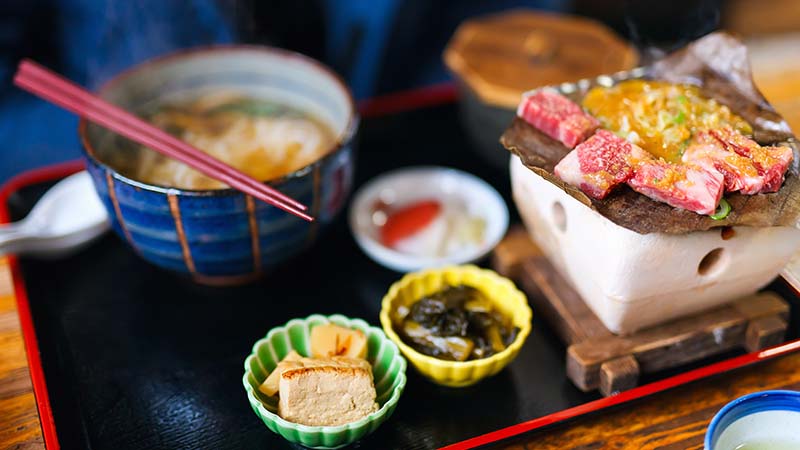
5. Eat Incredible Food
Japan’s food culture is a rich tapestry of traditional dishes and innovative creations. Street food vendors offer a great way to sample a variety of foods, from grilled meats and noodles to cookie dough milkshakes and rainbow cheese toasts. Indulge in gourmet fusion meals at Michelin-starred eateries. Pluck sushi from a conveyor belt at kaiten-zushi restaurants. Have your food served by robots at other spots. It’s a foodie’s wonderland.
Experience Japan’s Culture on a Collette Tour
If you want to get a glimpse into the complex culture of Japan, it might be time to book a trip to the archipelago. With so much to see and do, it can be hard to know where to start. At Collette, we help you make the most out of your time abroad whilst taking the stress out of planning. Our guided Japan tours are crafted around cultural experiences, must-see moments, and lesser known gems. Visit our website to explore our Japan tour packages, and contact us to book the trip of a lifetime.
